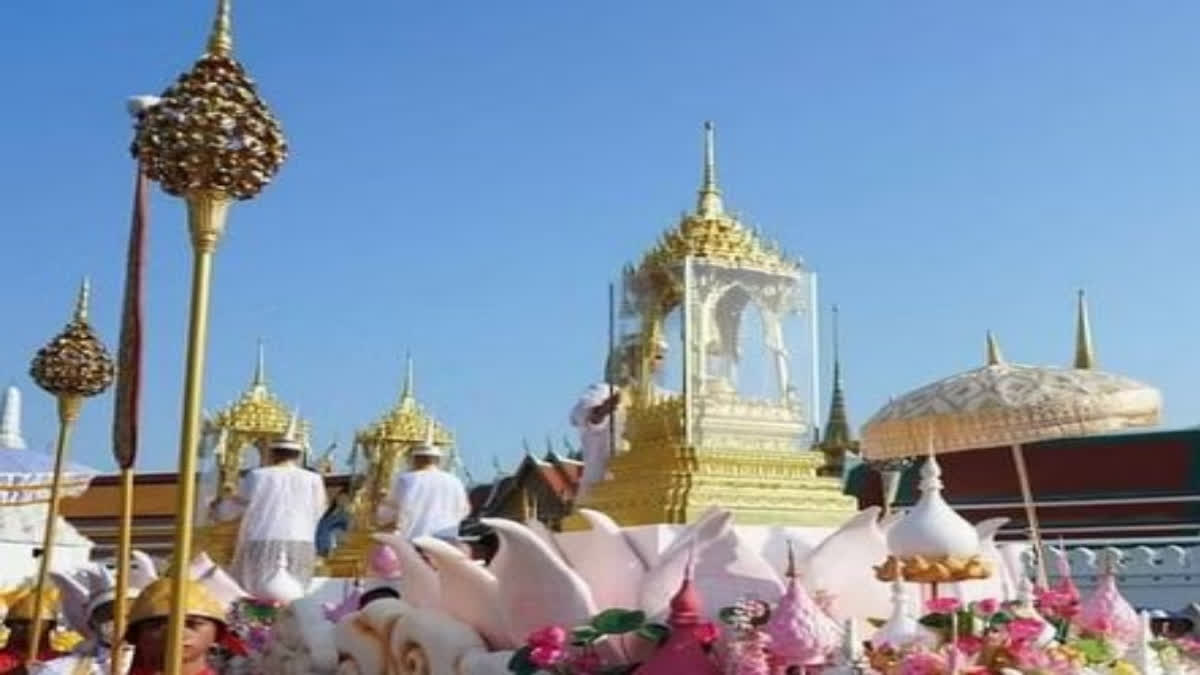New Delhi: Thailand's ambassador to India, Pattarat Hongtong expressed her country's 'deep gratitude' after India has sent several sacred relics of Lord Buddha and his disciples to Thailand, a Buddhist country which remains crucial to India's diplomacy.
"We are grateful and have deep gratitude to the government of India for offering us the holy relics of Buddha and his disciples to be enshrined in Thailand at the same time. This is a very spiritual and historic moment for all the Buddhist Thai devotees and also it is an opportunity for the Buddhists in neighboring countries to pay homage to the relics. Without the support of Govt of India, it wouldn't be been possible," Hongtong said.
She said that the bilateral relations between India and Thailand is smooth. "Having the holy relics in Thailand is another testament to the people-to-people connection. In Thailand, almost 4.1 million devotees have paid respect to the relics of Buddha, which is another level of friendship we have between the two countries", the ambassador told ETV Bharat.
After 26 days of exposition, the sacred relics of Buddha, along with those of his revered disciples Arahant Sariputta and Maha Moggallana, on Tuesday returned to India amid full guard of honors. Minister of State for Ministry of External Affairs, Meenakshi Lekhi received the holy relics here at Palam Air Force station, Technical area in New Delhi.
India's soft power diplomacy has been appreciated worldwide and Buddhism has been the key component of India's foreign policy. The lending of the Buddha relics by India to Thailand is another testament to the strong bond between the two nations and India's neighborhood-first policy.
A diplomacy based on Buddhism has become an organising principle of Modi’s ‘Act East’ policy, which aims to counter China’s growing influence in the region by cultivating bilateral economic and strategic relations with Indo-Pacific nations.
India, the birthplace of Buddha, has made Buddhism the perfect instrument to build and enhance bilateral relations in the region because of the religion’s pan-Asian presence and reputation for promoting equality and encouraging peaceful coexistence.
Further, Director General of the International Buddhist Confederation (IBC), Abhijit Halder said, " India and Thailand have had relations over the millennium and we call ourselves as 'civilizational neighbors'. This is primarily because Buddhism has been a critical bond between the two countries. Over the years, Thais have respected Indians and India for their wisdom, knowledge of peace and compassion, and all the values that we carry as part of Buddha's core knowledge. The Buddha relics are going to make huge differences in the bilateral relations".
Organised by India's Culture Ministry, in collaboration with the International Buddhist Confederation (IBC), the journey traversed various cities of Thailand, starting from New Delhi on February 22 and culminating on March 19, this year.
In February this year, to bolster India-Thailand bilateral ties, the four Holy Piparahwa Relics of Lord Buddha and his Two Disciples Arahata Sariputra and Arahata Maudgalyayana (in Sanskrit), were sent from India to Bangkok, Thailand for a 26-day exposition along with the 22 member delegations.
Sariputta and Moggallana (also called Maha Moggallana) were the two chief disciples of the Buddha, often stylized as the right-hand and left-hand disciples of the Buddha respectively.
The two disciples were childhood friends who were ordained under the Buddha together and are said to have become enlightened as arahants. The Buddha declared them his two chief disciples, after which they assumed leadership roles in the Buddha's ministry.



